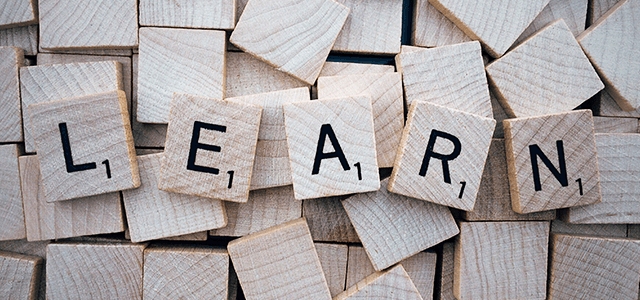Learning and Development. The two concepts go hand in hand, don’t they?
My question to you is this: are we in danger of thinking the two things are synonymous?
As a teacher and school leader for many years, it’s been a regular topic for debate. In discussion with trainers and HR personnel, I’ve found the distinctions to be rather muddled. In this article I’m going to offer some thoughts in the hope of clearing up the differences – and perhaps challenge you to reconsider what kind of ‘learning and development’ you’re offering.
Let’s start with some definitions.
What is learning?
I’ve always liked the quote from Benjamin Franklin, “Tell me and I forget. Teach me and I remember. Involve me and I learn.”
I favour this definition because it draws distinctions which run the risk of getting blurred. It all comes down to goals.
- Tell me – where the goal is to communicate knowledge but without involving any accountability or performance evaluation.
- Teach me – where the goal focuses on the teacher/trainer, passing on knowledge complete with a performance indicator. Often this indicator appears as a test result.
- Involve me – where the goal focuses on the actions of learning, the level of engagement. In this respect, there’s accountability for the teacher and the student. How well has the teacher conveyed the knowledge, but more importantly, what will the student DO with the knowledge? It’s all about the application of knowledge.
In the first two goals outlined here, the learner has a passive role in the learning process. They might only need to listen in the first goal, use their recall in the second. But you have to ask of these processes – how worthwhile are they?
- Will the knowledge be retained?
- Does it serve a broader purpose?
- Is the learning sustainable?
Learning requires action
Perhaps best summed up by the American civil engineer Clay P. Bedford, “You can teach a student a lesson for a day; but if you can teach him to learn by creating curiosity, he will continue the learning process as long as he lives.”. In other words, teaching/training/instruction is never enough.
The best learning happens when the student is the one doing the learning – and doing it independently. This requires the right mindset, one that values and applies curiosity and an eagerness to improve.
The definition of development
The American motivational speaker Denis Waitley said, “Personal development is the belief that you are worth the effort, time and energy needed to develop yourself.” This goes beyond the simple acquisition of knowledge. The development we’re talking about here is the improvement of Self. If you want to get truly philosophical, the Buddha has a more succinct version, “What we think, we become.”
Let’s revisit the point about learning again. The mindset is the vital part of learning success. Effective training encourages the student to think for themselves. But to what end? The answer lies in their development. They need to be directed towards actions which improve them as people – not just workers. Not just people who need to understand the latest health and safety directive. Not just to ensure the organisation has ticked compliance boxes.
The Science Fiction Author Ray Bradbury explains it well with this quote: “If you learn only methods, you’ll be tied to your methods, but if you learn principles you can devise your own methods.”
When we focus primarily on learning, the danger is you’re imposing knowledge on a mind which may not remember it, see it as worthwhile or action it in their lives. In which case, how worthwhile is that learning if it serves little purpose? However, if that learning is part of the development of a person, it helps forge that crucial mindset, one where the student:
- enjoys training because it offers an opportunity to improve themselves
- wants to find out more because what they discovered previously turned out to be useful
- thinks that learning, in itself, is interesting and worthwhile
- likes asking questions, even challenging the status quo. They don’t see this as a threat to authority but a way to offer improvement
- believes that making a mistake is an opportunity to learn, rather than worrying that mistake will see them reprimanded or perceived as a liability.
So, my message is a simple one: don’t think of Learning and Development as the same thing.
Learning should lead into Development so it achieves a positive, sustainable mindset.
Read this article “Your learning mirror” for more great insights
Phil Parker, Learning Development Consultant, Nimble Elearning


0 Comments